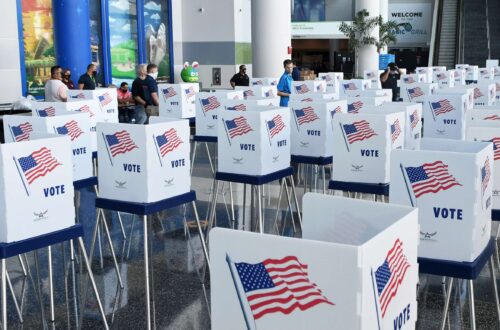Florida could face a shortage of nurses — with only 59,100 nurses projected to be employed in the state by 2035. This number could be detrimental for the state as the number of nurses would not meet Floridians health care demand as the population continues to increase.
According to a report by the IHS Markit and sponsored by the Florida Hospital Association and the Safety Net Hospital Alliance of Florida, the nurse shortage should be addressed as a crisis for Florida’s health care system. During the height of the COVID-19 pandemic, the number of nurses working was already considered low, and this trend threatens to continue into the next decade.
A report by Registered Nursing named Florida as the state with the highest nursing shortage. By assessing the projected demand for nurses in 2030 as 240,000 and the projected workforce in 2030 as 293,700, the report finds the shortage to be 53,700 nurses.
The pandemic shed light on the extremely demanding toll nurses faced — physically, emotionally and mentally. Long, strenuous hours led to burnout, stress, anxiety and depression among nurses both in the United States and worldwide. For many nurses, the intense stress for months on end forced them to leave their workplace.
“The pandemic, 18 months of responding to this emergency, has absolutely exacerbated the workforce shortage,” Mary Mayhew, CEO of the Florida Hospital Association, told the Florida Political Review.
According to Mayhew, the turnover rate for nurses throughout the state has been 25% over the last year and over 30% for critical care nurses.
While the entire nation has faced a nurse shortage since the start of the pandemic, Florida in particular has experienced a growth in its senior population, which has made the demand for nurses in Florida higher than in other parts of the country.
“We have an incredibly rapid growing state, and the growth in the nursing profession right now hasn’t grown to match the needs of the state,” Justin Senior, CEO of the Safety Net Hospital Alliance, told the Florida Political Review. “The population in Florida that is growing the fastest tends to be the 65 and older populations, and they’re the ones that need the most nursing services.”
Another incentive proposed to encourage more nurses to join the workforce is to increase wages. Many nurses have left their jobs because they feel they are being underpaid for their high-risk responsibilities. This pay dilemma, paired with fluctuating hours and emotional stress, has become one of the most common reasons for the nurse shortage.
However, one of the main sources perpetuating the nurse shortage may lie within the education system — specifically nursing schools. As the years have gone on, nursing schools are receiving more applications but are simultaneously becoming more competitive with how many applicants they accept.
“Colleges need to create more slots for nursing students. That requires attracting faculty, making the tuition rates reasonable and making nursing degrees more attractive,” Senior said.
Mayhew agrees with Senior’s assessment as recruiting more nurses starts with a less competitive educational system that will accept more prospective nursing students.
“We need the system to be responsive to demand,” Mayhew said. “What we need to do now is understand: How many more nursing graduates do we need in the next 12 to 36 months? And do we need to add additional slots to our community college and university programs?”
The Florida Legislature and Department of Legislation must evaluate what funding can go to colleges and universities to recruit more nurse faculty, Mayhew said. In order to do so, the government entities will need accurate data to reference and decide whether they have the abilities to give schools the money needed to expand their nursing programs.
Whether or not the legislature will allocate that funding is unclear, though. What is clear is that the solution to the nurse shortage starts with reforming Florida’s nursing education programs.
Check out other recent articles from Florida Political Review here.
Featured Image: Nurse. Unmodified photo used under a Creative Commons License by the DMCA. (https://bit.ly/3C8U66D)





